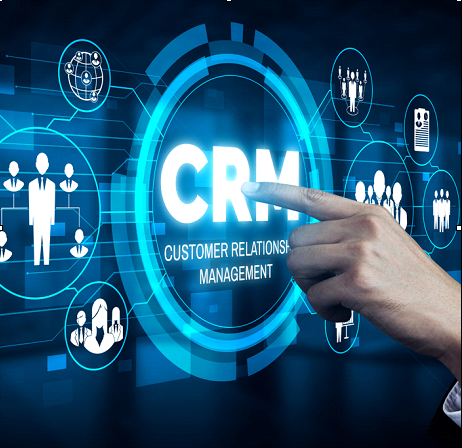CRM and Marketing Integration - A must have for Business Growth
In today’s world, businesses constantly find new avenues to attract and retain customers. Ultimately, it all comes down to how effectively you are engaged with your customers and delivering your product or service. This is where it is important to combine CRM with marketing strategies. Any successful company can immensely enhance customer engagement and experience and thus lead to higher conversion rates. In this blog post, we’ll explore how combining CRM, and marketing can benefit your
business, using key terms to highlight essential concepts.
What is CRM and Why Does It Matter in Marketing?
Customer Relationship Management (CRM) is more than just software; it aims to manage a company’s interactions with current and potential customers. By using CRM systems and automation, companies can stay ahead of customer data, manage customer relationships, and streamline processes. With the right kind of data analytics, it will help all departments use it to boost customer satisfaction and target potential buyers.

When CRM is integrated with marketing efforts, it turns into a powerful tool that not only helps in managing relationships but also in crafting targeted marketing campaigns. CRM marketing software, for example, helps marketers automate repetitive tasks, monitor customer interactions, and analyze data to fine-tune their marketing strategies. This integration ensures that marketing campaigns are not just generic but personalized to meet the specific needs and preferences of customers, leading to better engagement and increased sales.
Why Integrate CRM with Marketing? The Benefits
⦁ Personalized Customer Experience
⦁ Better Lead Management
Integrating sales CRM software with marketing tools can help businesses manage leads more efficiently. Businesses can track leads from the first point of contact to the final sale.
This will ensure that right leads are assigned to the right person within no time and further discard leads that are not relevant to the ideal customer profile. This will increase productivity, and efficacy and also reduce the time for closing a potential customer. Further with automation like round robin and lead scoring mechanism, equal opportunities will be given to all sales team
⦁ Enhanced Customer Support
Better Customer Support Can be provided with CRM and marketing tool integrated. With this the customer’s journey can be captured from the initial stage to understand in detail the history of how the customer came on board, what campaigns the customer has been a part of and the customer’s likes and dislikes. Through this personalized customer support can be given and in addition marketing strategies can be implemented with respect to customer satisfaction. A happy customer is more likely to become a repeat customer, and word-of-mouth recommendations can be invaluable.
⦁ Data-Driven Marketing Decisions
CRM and sales software provide a wealth of data that can be used to make informed marketing decisions. By analyzing data from CRM marketing software, businesses can understand customer behavior, preferences, and trends. In addition to this, based on the response to the lead different marketing strategies can be carried out. For example, a different marketing campaign can be designed for all those leads which are non-responsive but belong to our ideal customer profile. In addition, these analytics can be run on based on conversion ratios source to plan in terms of allotting budget and costs for different marketing areas.
⦁ Streamlined Marketing Operations
How to Successfully Integrate CRM with Marketing
⦁ Select the Right CRM System
⦁ Foster Collaboration Between Teams


